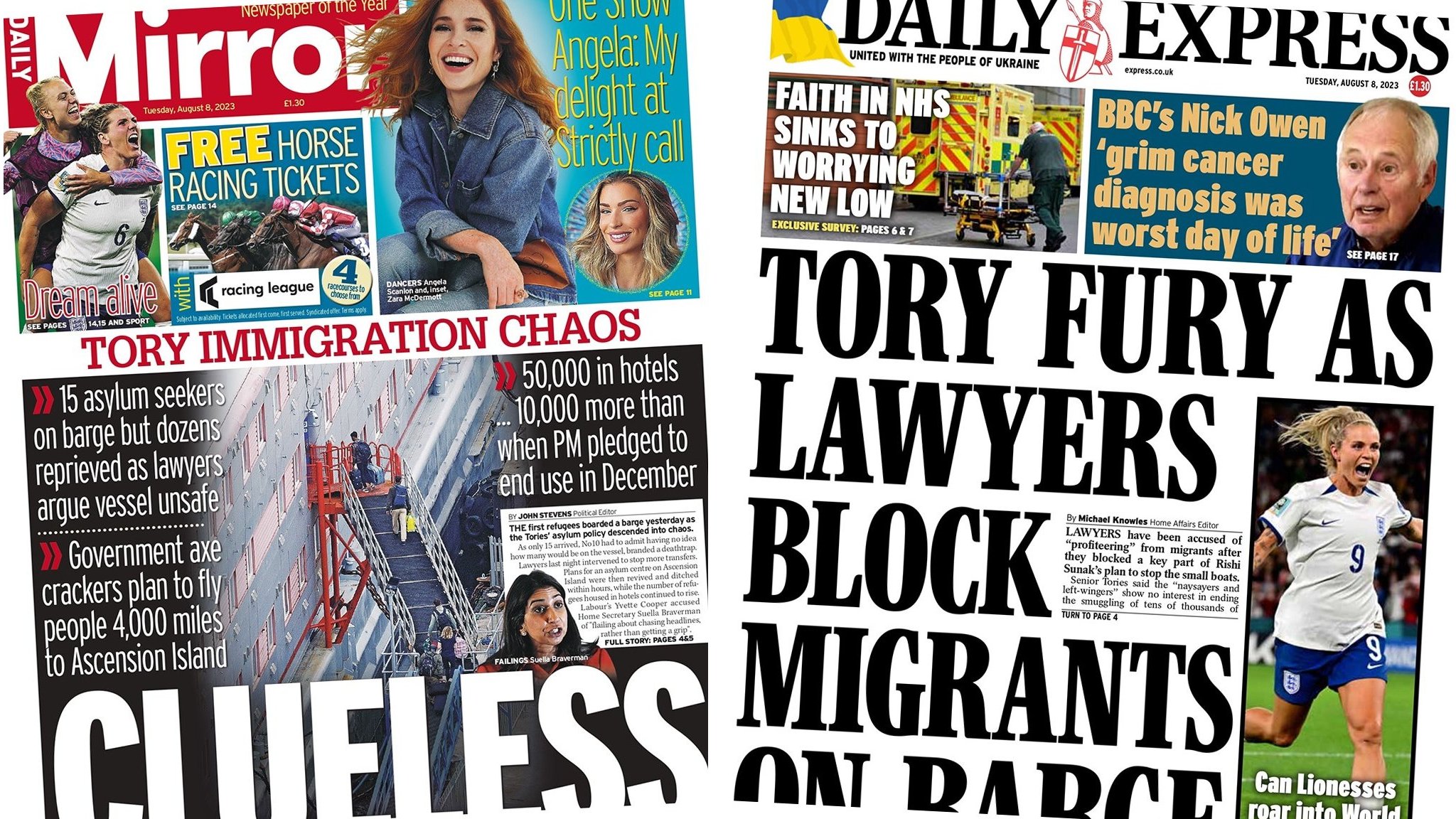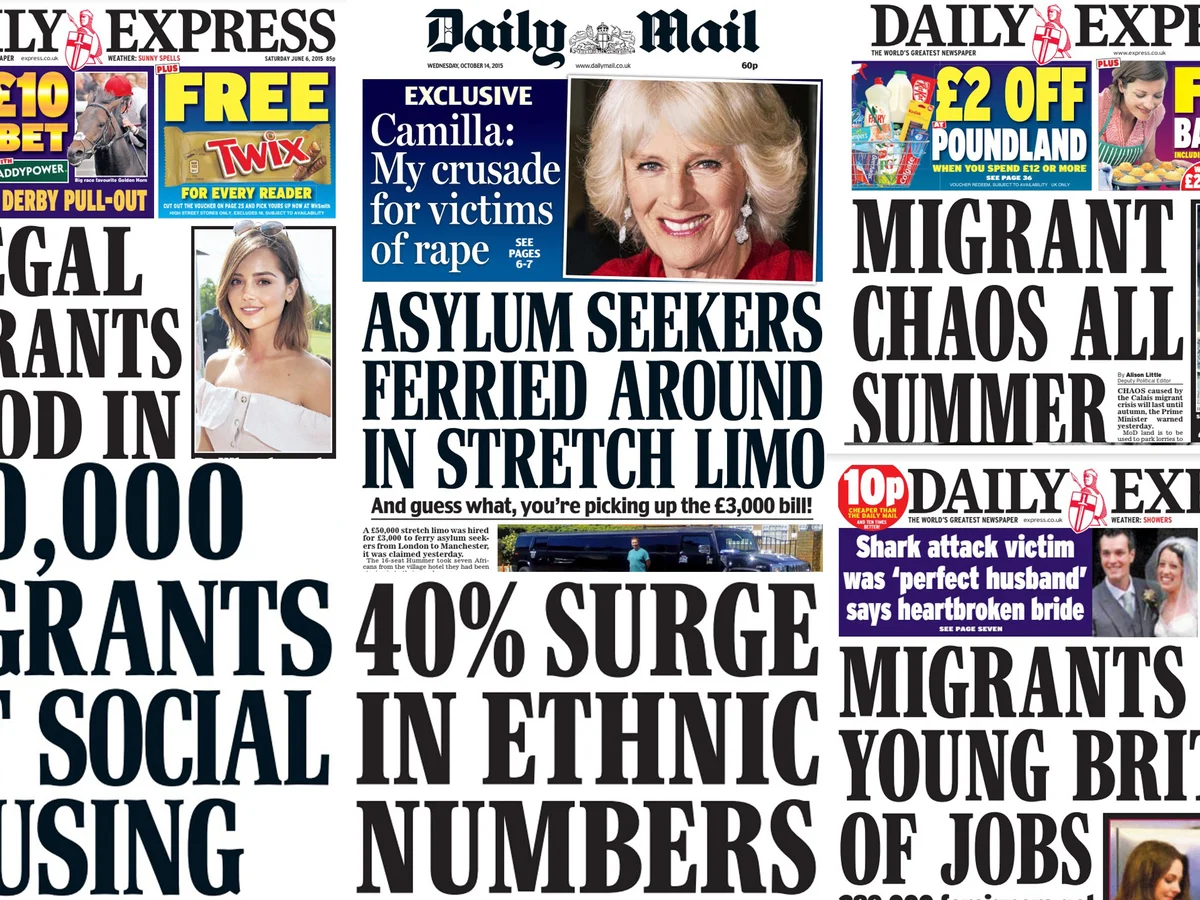The judicial process is now underway for those involved in the race riots that broke out in the UK in August. A particularly severe punishment issued was a nine-year prison sentence for a British individual who was linked to igniting a fire outside a hotel that housed over 200 asylum seekers. These significant sentences aim to deter future incidents of far-right violence and hate crimes.
In the aftermath of these justified severe penalties, it’s crucial to examine if such measures genuinely tackle Britain’s perceptions on race, immigration, and free expression. As LUXUO reported last month, the wave of race riots that unfolded in the UK and Ireland was spurred by anti-immigrant sentiments that escalated into violence against people of color. Additionally, it was noted that misinformation propagated by fake news outlets on X played a role in spreading falsehoods about the deaths of three children in Southport.

Read More: Gen Z Extremism: The Role of “Authenticity” in Radical Beliefs
Prominent media figures, including Nigel Farage, have exacerbated these tensions, especially after he expressed skepticism about whether a 17-year-old boy involved in a mass stabbing in Southport was an asylum seeker, often repeating “I don’t know, I’m just asking questions” as a cover for what could be construed as “free speech,” potentially shielding him from future defamation litigation. Political figures like Farage commonly use vague language to create divisions and provoke unrest while carefully avoiding direct engagement in hate speech or incitement. Importantly, these sentiments have resonated with younger people, some of whom took part in the riots, attempting to forcibly enter the residences of black and brown families.
Read More: The Effects of Political Correctness and Commercialisation on Creativity
Echo Chambers and Algorithmic Radicalisation
 Front pages of British tabloids demonising asylum seekers
Front pages of British tabloids demonising asylum seekers
British media platforms like The Sun, The Daily Mirror, The Daily Express, and The Telegraph frequently create echo chambers by consistently promoting similar agendas, reinforcing existing (often right-leaning) beliefs within their audiences instead of fostering diverse viewpoints. Their emphasis on sensationalized stories saturating front pages prioritizes attracting attention, leading to an oversimplification of complex issues. Moreover, using provocative headlines to generate traffic often prioritizes engagement over factual accuracy, which hampers a well-rounded understanding and encourages groupthink. Social media sites like X (formerly Twitter) and Facebook (Meta) intensify this effect by amplifying popular sentiments and fostering feedback loops that deepen groupthink.
Read More: Opinion: Collective Consciousness Is Not the Ultimate Solution to Global Issues
 Front pages of British newspapers portraying asylum seekers negatively
Front pages of British newspapers portraying asylum seekers negatively
Numerous British media outlets exhibit clear political or ideological slants, which can distort reporting and present information in ways that align with their objectives, deterring critical thinking and further entrenching groupthink. This situation is exacerbated by the concentration of media control among a handful of individuals (such as Rupert Murdoch), resulting in uniformity in coverage and the suppression of alternative viewpoints.
Politicians and policymakers frequently respond to media-induced groupthink, leading to decisions that reflect popular yet potentially uninformed or misguided beliefs. In essence, British legislators often cater to right-wing constituents by promoting harmful rhetoric that ensures their political survival, even if they don’t personally subscribe to those ideologies. A case in point is former home secretary Suella Braverman, who consistently made polarizing comments about immigrants despite her own parents’ migration to the UK from Kenya and Mauritius in the 1960s. Marginalized groups, including asylum seekers and brown and black immigrants, are often unnecessarily portrayed as societal nuisances draining taxpayer resources, overlooking the broader issues of wealth disparity in the nation.
Read More: Twitter’s Rebranding Solidifies Elon Musk’s Legacy as a Pivotal Tech Influencer
This phenomenon was particularly evident during the Brexit referendum, where politicians perpetuated the (now debunked) assertion that the UK economy would thrive post-EU exit, alongside claims that foreign nationals were responsible for job losses among native British workers. Social media channels — especially Facebook — played a crucial role in magnifying pro-Leave and pro-Remain echo chambers. Algorithms favoring sensational and emotionally resonant content strengthen existing biases, causing further polarization and fostering groupthink across the political landscape. This dynamic has led to a skewed discussion surrounding Brexit and filtered perspectives in mainstream discourse. For example, issues concerning Palestine are often marginalized. Human Rights Watch reports that Meta has systematically suppressed pro-Palestinian content on platforms like Instagram and Facebook.
Users of networks like Facebook, Instagram, X, YouTube, and TikTok have accused these platforms of censoring accounts or deliberately limiting the reach of pro-Palestinian messaging — a tactic referred to as shadowbanning — according to Al Jazeera. Posts that include hashtags such as “#FreePalestine,” “#IStandWithPalestine,” or the term “genocide” are often hidden, with several users also alleging that Instagram has removed content that mentions Palestine for breaching “community guidelines.”
In June, NBC News highlighted research by the Institute for Strategic Dialogue, a London-based nonprofit focused on extremism in video suggestions. The report revealed that YouTube’s recommendation system accounted for “70 percent of all video views.” Notably, Fox News ranked as the top recommended news source for both children and adult users interested in “male lifestyle guru” content, even without prior exposure to it during profile setup. This indicates the considerable impact of recommendation algorithms on media consumption habits, affecting user preferences in ways they may not consciously acknowledge, especially among younger users easily influenced by algorithm-driven content. It emphasizes how algorithms can perpetuate and amplify particular media narratives, shaping viewers’ perceptions and engagement with content.
Read More: What is “Threads” and Why Does Twitter Feel Threatened?
For more insights into recent cultural developments and opinion pieces, click here.




